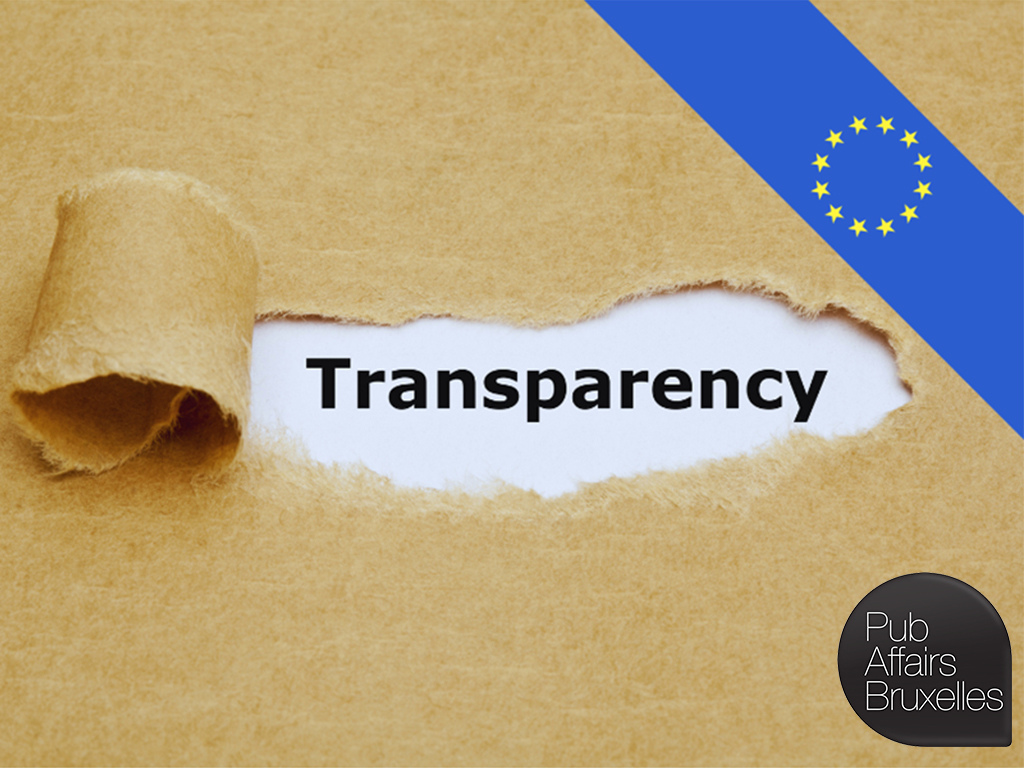We are delighted to invite you to an event which will be held on Tuesday, 20th of February at 17.00.
This event will consist of an afternoon of discussion on the evolution of the EU rules on transparency, accountability and integrity of the decision-making process. The event will also be an opportunity to discuss what lies ahead for interest representation with our distinguished speakers:
- Alvaro de Elera, Member, Cabinet of Vice-President Jourova, European Commission;
- Monika Hohlmeier MEP (EPP/DE), Member of the Advisory Committee on the Conduct of EP Members;
- Christian Beck, Head of Office, Daniel Freund MEP (Green/DE);
- Isabelle De Vinck, Chairperson, European Public Affairs Consultancies’ Association (EPACA);
- Paul Varakas, President, Society of European Affairs Professional (SEAP);
- Alexander Katsaitis, Professor, Stockholm University.
Daniel Braun, Head of Cabinet, Vice-President Jourova, European Commission will hold a keynote speech.
David Coen, Professor of Public Policy, UCL will moderate the discussion.
This event is public and will be held online.
About the debate
Together with the creation of the joint European Transparency Register in 2011, the implementation of the 2021 Interinstitutional Agreement (2021 IIA) on a Mandatory Transparency Register constitutes the backbone of EU policy making in regards to transparency, accountability and integrity, for both interest representation and the European Institutions. Indeed, the Mandatory Transparency Register has included in scope, for the first time, the European Council and has made the register de facto mandatory by introducing the principle of conditionality that sets registration as a precondition for interest representatives to be able to carry out certain activities, such as holding meetings with members of the European Commission, having access to Parliament’s and Council’s premises or co-hosting events with MEPs. Moreover, registration is possible only if abiding by a code of conduct which regulates how interest representatives should conduct their activities in order to respect the rules in place for members and staff of EU institutions.
The Mandatory Transparency register, although it received some degree of criticism as reported by the European Parliament Think Tank (EPRS), provides clearer definitions and specifies which entities are out of scope of the conditionality principle. For example, public authorities of EU member states representatives or officials, intergovernmental organisations and public authorities of third countries, including mission and embassies, are some of the entities who were not classified as “interest representatives”.
In April 2021 a European Parliament decision welcomed the Mandatory Transparency Register while reiterating its support for a more ambitious agenda. Further, in the aftermath of recent scandals, the European Parliament proposed expanding the scope of the Register to include representatives of non-EU countries, while reinforcing the register’s staff and resources. Within this context, in January 2022, European Parliament President Roberta Metsola presented a 14-point plan to enhance transparency and integrity.
In September 2023, the parliamentary initiatives, in parallel with the 14-point Metsola plan, led to the European Parliament’s adoption of new rules, that entered into force in November 2023. Such rules: prescribe, amongst others, all MEPs and their assistants to publish all scheduled meetings with interest representatives falling under the Transparency Register as well as with public authorities of third countries; include the obligation for MEPs to annex to all reports and opinions the input on ideas or suggestions which they received from external actors; tighten rules on conflict of interest, second income and gifts for MEPs and their staff; create a 6 month ‘cooling-off’ period for former members of Parliament who wish to lobby the Parliament.
Meanwhile, the European Commission has proposed, in June 2023, the establishment of an interinstitutional Ethics Body to adopt “common standards for the ethical conduct of members and a formal mechanism for coordination and exchange of views on ethical requirements among institutions”, as well as, at the end of the year 2023, a legislative proposal, currently under discussion, that should enhance transparency and democratic accountability of interest representation activities on behalf of third countries.
This overhaul of the transparency rules has sparked the debate on the possible impacts these new rules will have on the interactions between interest representatives and the EU institutions and on how they would enhance transparency, accountability and integrity of the EU-decision making process as a whole.
The event will commence online at 17.00 and will last around an hour and a half.
The audience will be able to ask questions during both the discussion and the Q&A session through sli.do #EUTransparency
We look forward to e-hosting you at 17.00 on the 20th of February.
This is a public event, hence the Chatham House Rule will not apply.



